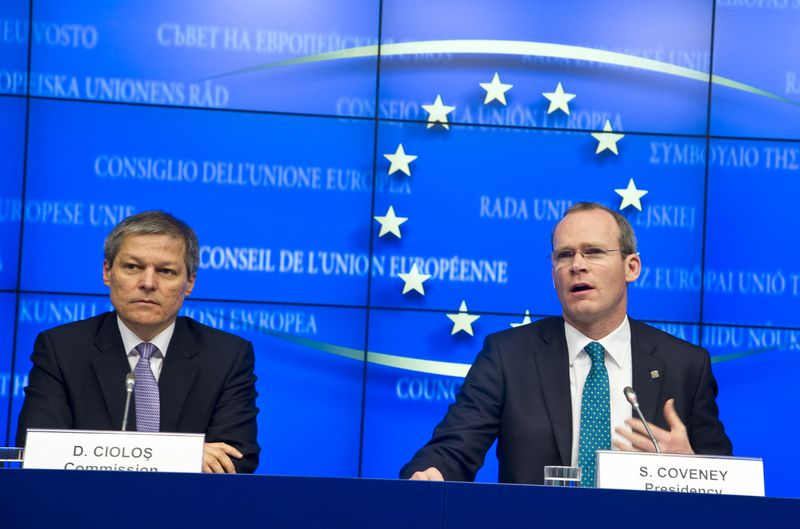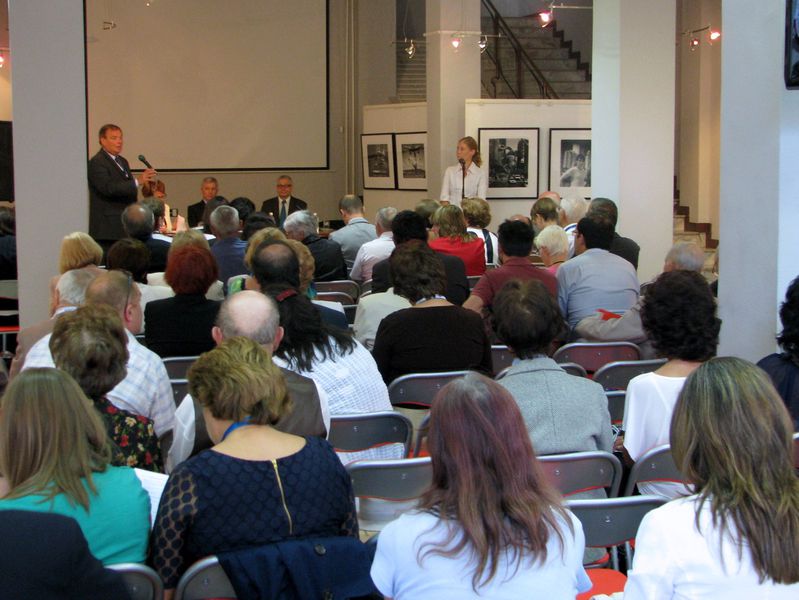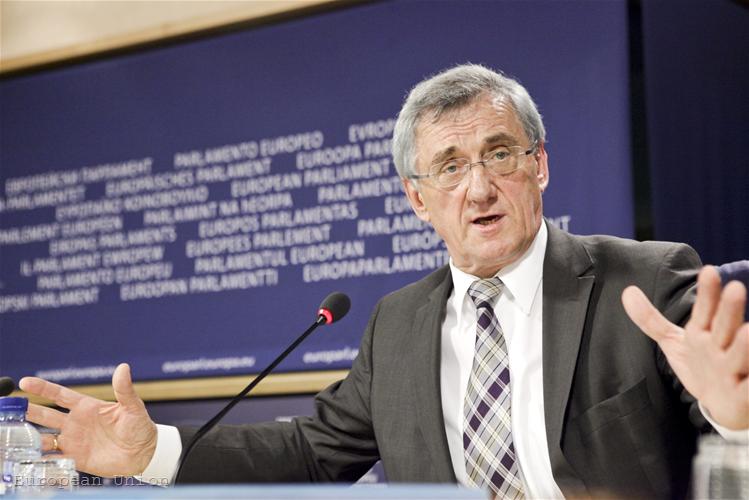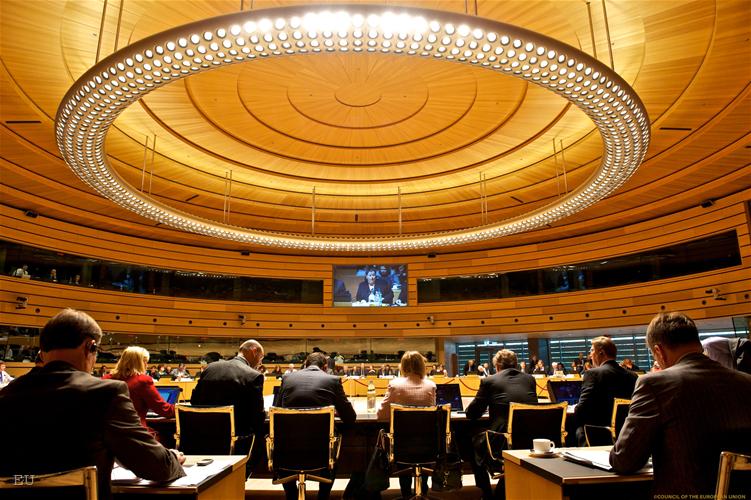Transparency for a Hundred or Five Thousand Euros?
Adelina Marini, March 8, 2013
 Transparency in payment of farming subsidies has been debated for years at various levels and specialised non-governmental organisations have been calling for full transparency of the information who receives subsidies, how much and why from the two agricultural funds. The Common Agricultural Policy (CAP) of the EU is the biggest community policy, absorbing a little less than half of the EU's common budget and is usually at the centre of the negotiations of every multiannual financial framework. At the last talks earlier this year about the 2014-2020 framework, the CAP has again won by keeping its share of nearly 40% of the common budget, amounting to 960 billion euros totally.
Transparency in payment of farming subsidies has been debated for years at various levels and specialised non-governmental organisations have been calling for full transparency of the information who receives subsidies, how much and why from the two agricultural funds. The Common Agricultural Policy (CAP) of the EU is the biggest community policy, absorbing a little less than half of the EU's common budget and is usually at the centre of the negotiations of every multiannual financial framework. At the last talks earlier this year about the 2014-2020 framework, the CAP has again won by keeping its share of nearly 40% of the common budget, amounting to 960 billion euros totally.
In 2012, the European Commission proposed amendments to the regulation that deals among other things with transparency in farming subsidies too. One of the reasons for the changes is Croatia's accession to the EU, scheduled for July 1st this year, and another reason is the objections of some member states, raised with the European Court of Justice, related to what information to be made public.
According to the proposal of the Commission, the member states have to ensure annual ex post publication of the beneficiaries of eurosubsidies from the two agricultural funds - the European Agriculture Guarantee Fund (EAGF) and the European Agriculture Fund for Regional Development (EAFRD). The information should contain the first name and the surname of the beneficiary when it comes to natural persons and when the beneficiary is a legal personality then the registered name should be published. If it comes to associations that are not legal persons, the full name of the association as registered should be published as well. It is also required the name of the municipality to be published where the beneficiary is a resident or registered, the postal code or other information that could identify the municipality.
The regulation also requires publication of the amounts corresponding to every measure funded by the two funds for the respective financial year, as well as a description of the measure. All this information should be published on a single website per member state and to remain there for two years from the date of first publication. The Commission is also introducing a threshold. If the agricultural aid is equal or less than 1000 euros then the information for the beneficiary might not be published. The member states commit to inform their beneficiaries that their data will be made public and can be used by auditing and investigating bodies of the EU or the member state with the aim to defend the financial interests of the Union.
At the first discussion of the amended proposal in November 2012, the agriculture ministers agreed that they needed to consult with the legal services of the Council and only thereafter to decide whether the regulation should be approved. In spite of the multiple consultations in the special working group, there still are countries that object the minimum threshold or have other objections. That division was very clear at the debate in the council of the EU ministers of agriculture on February 25th. In the beginning of the meeting Agriculture Commissioner Dacian Ciolos again recalled that the issue of transparency of information about CAP subsidies was very important because citizens pay a lot of attention and want to be informed about how public money is spent.
It is not only about transparency, but about confidence in a policy for which the European Council proposed a large part of the common budget to be allotted, Mr Ciolos said having in mind the EU summit in the beginning of February when the deal about  Budget 2014-2020 has been finally agreed and which is yet to be approved by the European Parliament. The EU commissioner believes that his proposal is well balanced between the right to protect personal data of beneficiaries and on the other hand to keep the principle of transparency. He called on the ministers to agree because otherwise he will find it difficult to explain which political institutions do not wish such transparency of the common budget.
Budget 2014-2020 has been finally agreed and which is yet to be approved by the European Parliament. The EU commissioner believes that his proposal is well balanced between the right to protect personal data of beneficiaries and on the other hand to keep the principle of transparency. He called on the ministers to agree because otherwise he will find it difficult to explain which political institutions do not wish such transparency of the common budget.
The debate saw continuous division between countries wishing full transparency and those who insist on a minimum threshold. Among the latter there were also differences in their visions about the size of the threshold. Cyprus, for instance, insisted the minimum threshold to be raised from 1000 to 5000 euros because this was to influence positively on the reduction of administrative costs for public control. But the Danish agriculture minister, Mette Gjerskov, was perplexed why was it necessary to keep that information secret. She said that information musty be provided for all beneficiaries, even the smallest ones. "I don't think we can get away by hiding behind legal facts", she said and called any legal issues to be resolved. "We should be entirely open when it comes to CAP aid".
Bewilderment expressed Estonia as well, according to which it was not justified to differentiate on the basis of the amount of aid or other criteria. Every aid means that taxpayers' money is used, which is way all farmers should be treated equally, was the Estonian position. Minister of Agriculture Helir-Valdor Seedor said that before the court decision in Estonia data for all recipients of aid were published for five years and there were no legal disputes. He pointed pout that if there was no other way, because of the court ruling, a minimum threshold should be introduced but it should not be more than 100 euros. The Czech Republic also announced that a maximum transparent approach should be undertaken and disagreed with the introduction of any thresholds beyond the court decision.
But Hungary said it will not support the proposal until the Commission presented an impact assessment to see what the results will be. Budapest disagrees the names of natural persons to be published because it believes that transparency can be ensured without this. Defining a minimum threshold should concern us because it does not guarantee equality, was the Hungarian position. And Poland raised the issue whether the same transparency measures will be applied for all European programmes or the CAP only.
Spain demanded the threshold to be three thousand euros and Portugal questioned the need of a threshold. Germany, too, refused to support the proposal pointing out that the Commission proposal did not respond to the rules for protection of personal data. Finland said it was critical toward the public control because, according to Helsinki, first and foremost it was a responsibility of the national authorities. Ways should be discussed to protect better the personal freedom of recipients and to publish information on a sectoral or regional level, not about individual beneficiaries, the Finnish Agriculture Minister Jari Koskinen demanded.
 Similar position defended Svetlana Boyanova, the Bulgarian deputy minister of agriculture and foods. In her words, the publication of information about natural persons should be handled with caution. From her statement it becomes clear that Bulgaria endorses the Commission proposal about a minimum threshold of a thousand euros. Ireland and Malta expressed concerns with the publication of personal data of aid recipients, while Lithuania pointed that the threshold should be valid only for natural persons. Sweden, too, was among the countries to call all data to be published about everyone who receive assistance. The same opinion was shared by Croatia as well.
Similar position defended Svetlana Boyanova, the Bulgarian deputy minister of agriculture and foods. In her words, the publication of information about natural persons should be handled with caution. From her statement it becomes clear that Bulgaria endorses the Commission proposal about a minimum threshold of a thousand euros. Ireland and Malta expressed concerns with the publication of personal data of aid recipients, while Lithuania pointed that the threshold should be valid only for natural persons. Sweden, too, was among the countries to call all data to be published about everyone who receive assistance. The same opinion was shared by Croatia as well.
Commissioner Ciolos again tried to defend his proposal, assuring that the Commission was very cautious about the legal side of the matter and believes that it is in line with the court ruling. "If there is no transparency, we leave the impression that we are hiding something", he added and pointed out that transparency was linked to confidence in the political capabilities of the EU to guarantee the taxpayers' money. In conclusion, Irish Agriculture Minister Simon Coveney said there was sufficient political support in the Council for the Commission proposal. Discussions on the issue will continue.
 | © Polish Embassy in Sofia
| © Polish Embassy in Sofia | © European Union
| © European Union | © EU
| © EU